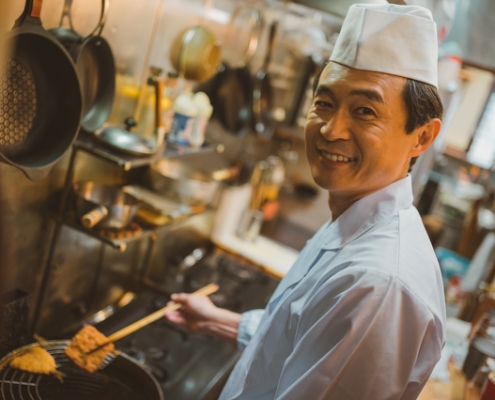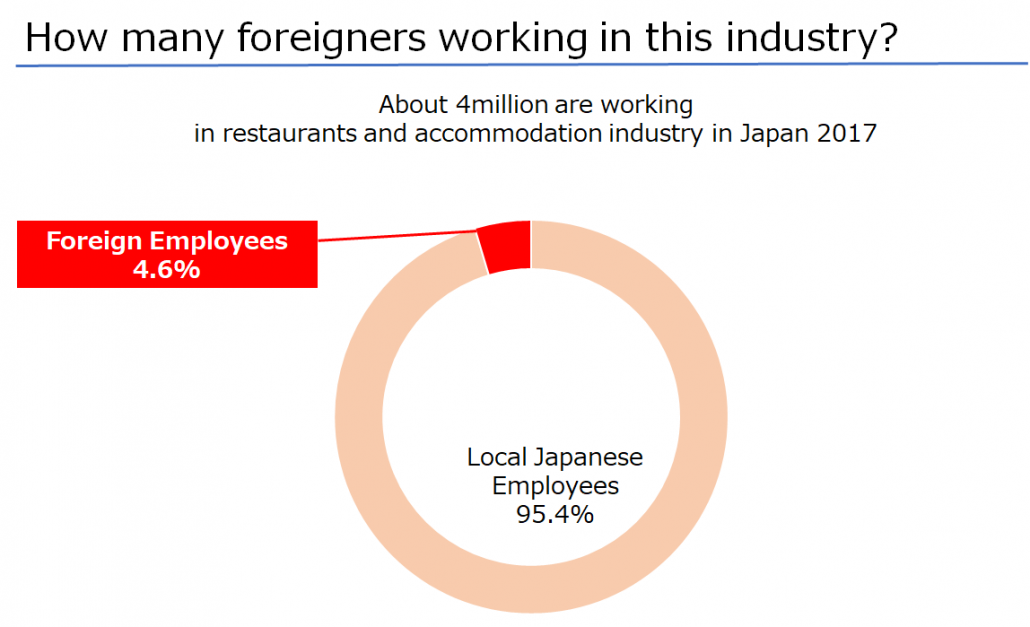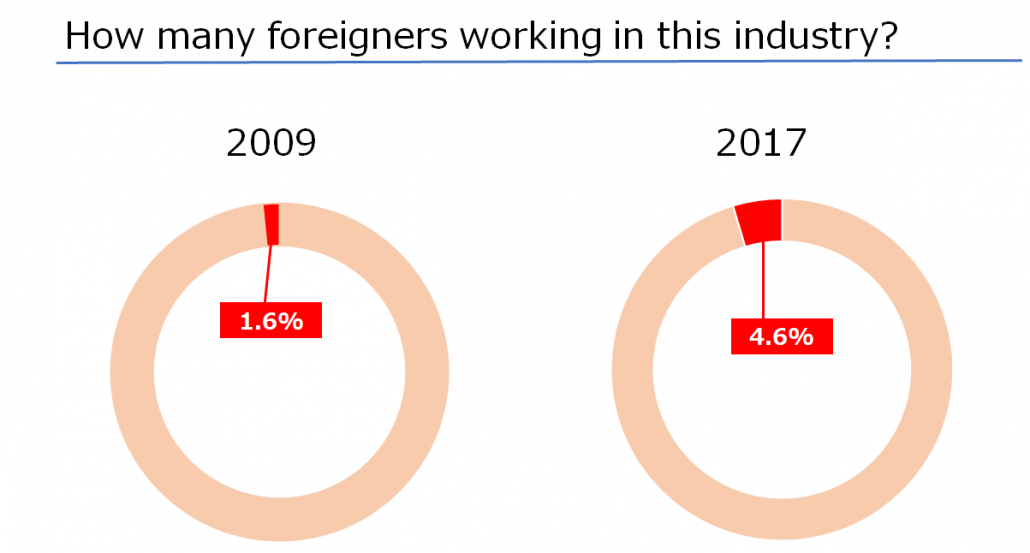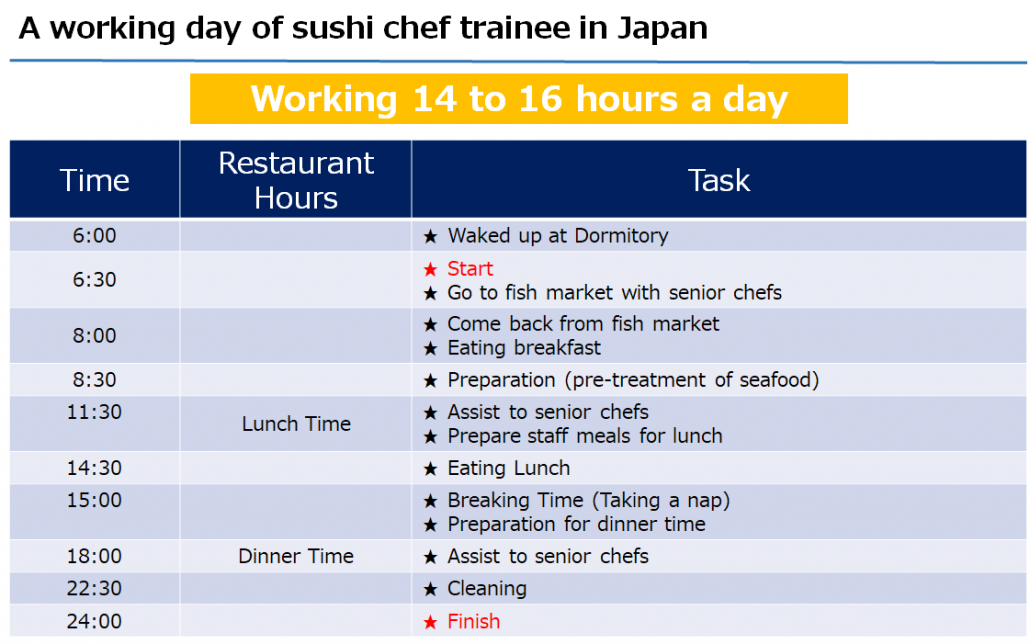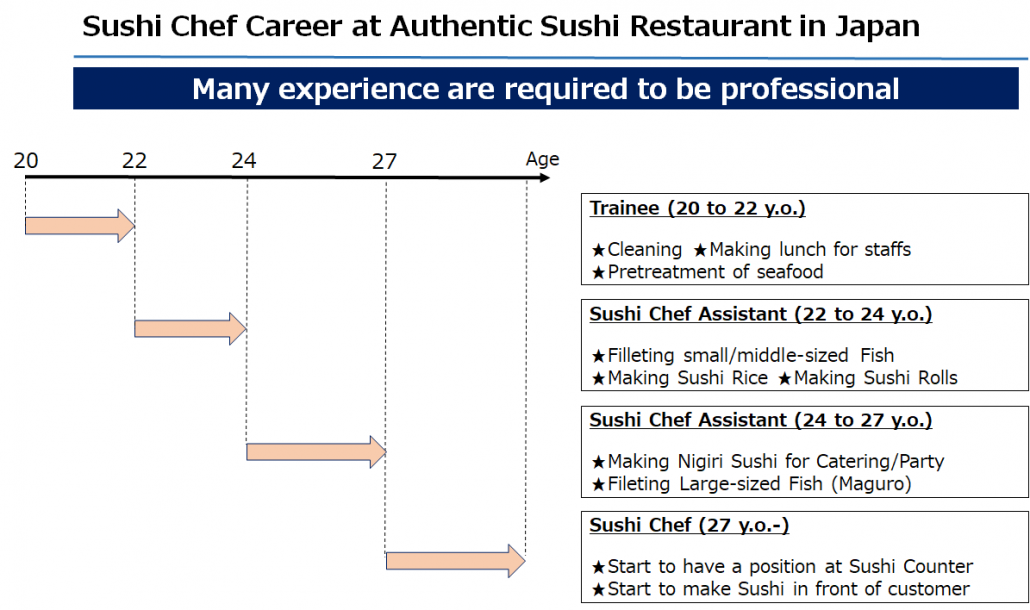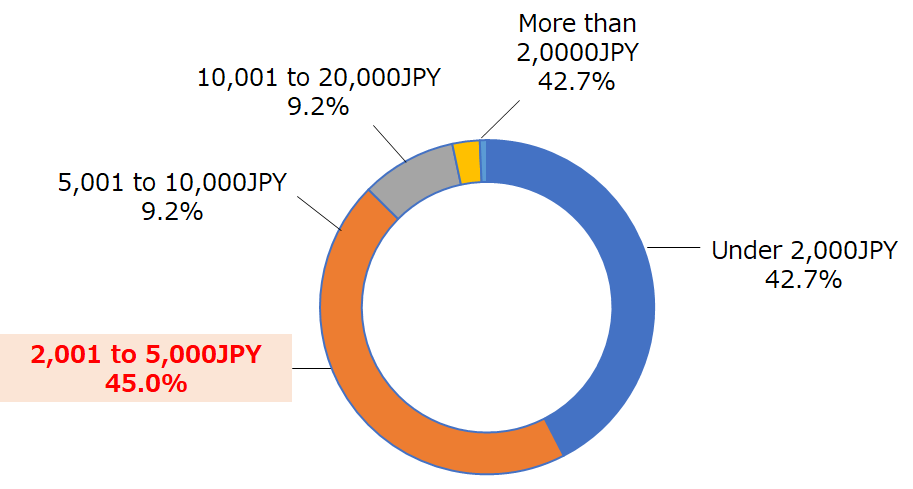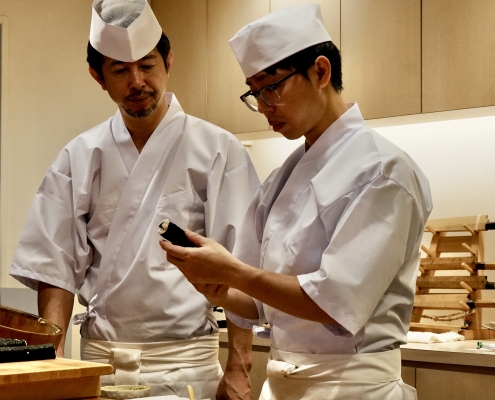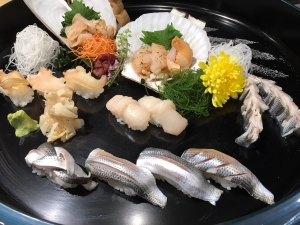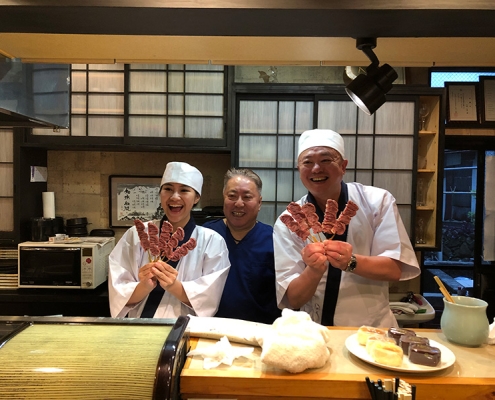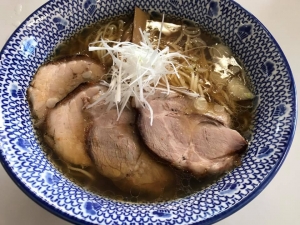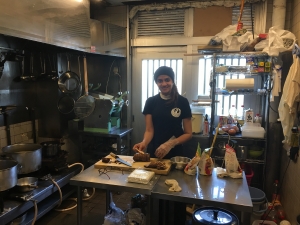Before looking for chef jobs in Japan
May 20 2023 Updated
The following are seven things I think that overseas chefs should be aware of before looking for work in Japan.
Contents
Restaurants and the working population
In Japan, there are approximately 600,000 restaurants, and 4 million people (out of a population of 120 million) working in the food and beverage industry, this includes not only chefs but also the service staff etc.
Non-Japanese staff account for 4.6% of this 4 million, or about 185,000 people.
Trends in the number of foreign workers
In 2009, the percentage of foreign workers in the food and beverage industry was 1.6%, but in less than 10 years, that number had jumped to 4.6% by 2017. Many of these are Asian students who have been granted student visas (students can work only part-time) and that can speak some Japanese.
However in order to resolve a lack of workers due to the declining birthrate, in 2019, the Japanese government launched a new visa category (Designated Skilled Labor) for those who work in the food and beverage industry, which means that foreign workers will likely increase in the future.
Requirements to work in Japan
To work as a chef in Japan, there are three major requirements: the first is a visa to work legally, the second is Japanese language ability, and the third is skill as a chef.
To work as a chef in Japan, there are three major requirements: the first is a visa to work legally, the second is Japanese language ability, and the third is skill as a chef.
When it comes to Japanese language skills, daily conversation is the basic minimum required. Japan has a language ability test called LPT (Japanese Language Proficiency Test) similar to TOEFL in the U.S. In order to work as a chef, a language level of at least N-4 is required. It depends on the person of course, but this is roughly the equivalent of 300 hours of Japanese study at least.
There are different types of visa allows you to work in Japan as a chef. (i.g. student visa, working holiday visa, professional chef visa and more)
To know more about work visa for foreign chefs in Japan, please read this article.
Salary in Japan
For a full-time worker, the total average annual income is approximately 2.5 million JPY ($ 23,000 US) to 5 million JPY ($ 46,000 US). The average annual income in Japan is around 4.3 million ($ 39,000 US). From this, health insurance premiums, welfare insurance premiums, employment insurance premiums, income tax, and resident tax are deducted, and about 75% to 80% of the total will remain.
The salary does depend on the restaurant, as head chefs of high-class Japanese restaurants and sushi restaurants sometime earn more than 10 million yen ($ 92,000 US) a year.
In case of part-time work, wages are paid by the hour, in Tokyo 1,000 – 1,300 JPY per hour is the going rate ($ 9 – 11 US). Of course, much depends on the restaurant you work for and the wages you receive, but after taxes and insurance premiums, you will be left with about 80 -100 % of the total.
Working Hours
Basically, working hours should be 8 hours a day, 40 hours a week, but, as in other countries, in Japan restaurants have long working hours. The following will give you a rough idea of the daily work schedule of a young chef in a sushi restaurant. Currently many restaurants are suffering from a labor shortage.
Therefore, the number of restaurants pushing for labor reforms is increasing, and as a result, working hours have gradually shortened over the last few years.
Career Planning
It used to be said that “a chef needs 10 years to become a professional of Sushi and Japanese Cuisine”, and in very strict traditional Japanese restaurants new chefs were not allowed to prepare any fish for several years.
They used to say in Sushi shops “3 years of cooking rice and 8 years making nigiri”. The idea was that ten years were the minimum to make it to the top and have your own shop. In order to gain independence as a professional chef and business owner, you must endure the training period with patience. However, as many young people quit because they cannot endure this ten-years of training, nowadays many restaurants allow new chefs to experience cooking and preparing fish at an earlier stage. Below is an example of a career plan for young person of about 20 years of age and without any experience.
How long it will take to establish a career depends very much on each individual, so please take this example as a reference only.
The restaurant business
Average Price per Person
As of 2019, according to the data from Tabelog, a popular restaurant review site in Japan, 45% of restaurants have a price range of 2,000 to 5,000JPY ($ 18 US – $ 45 US).
Balancing Income and Expenditure
Generally speaking, the operating profit for a restaurant in Japan runs about 10% of the sales. The initial costs (raw materials) take about 30% of the sales (possibly more than 50% in sushi shops), labor costs 20 – 30%, rent 10%, and then after utility expenses, promotional expenses and other miscellaneous expenses, about 10% is left.
As the competition among Japanese restaurants is very stiff, and local customers are very serious about taste and service, the probability of surviving two years after opening is less than 50%. For that reason, on a world scale the quality of Japanese restaurants is very high.

Related Articles
Want to know more?

Culinary Schools in Japan
Frontier Zipang
An innovative culinary school where students can learn practical skills at partner restaurants in Yokohama and Tokyo.
Tokyo Sushi Academy
The first and the most popular sushi school in the world.
Japan Culinary Institute
Japanese culinary training including sushi, kaiseki, yakitori, wagashi and more.
Miyajima Ramen School
More than 1,000 graduates from over 50 countries.
International Ramen School
Ramen study program combined with OJT

